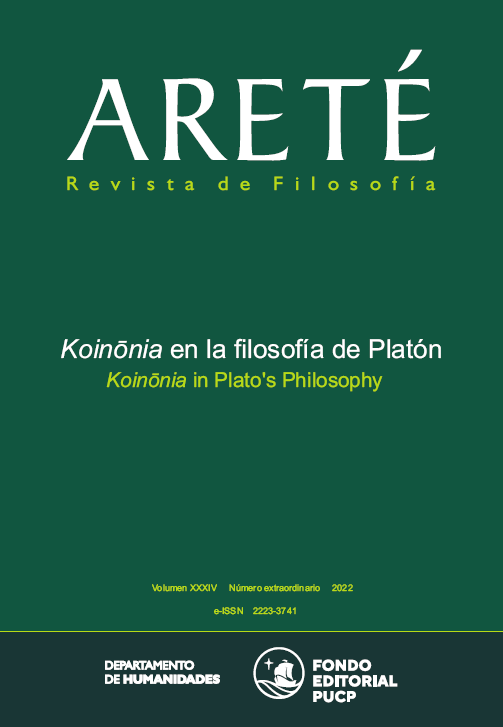The Women’s Law (tou gynaikeiou nomos) in the Kallipolis of Plato’s Republic
DOI:
https://doi.org/10.18800/arete.2022ext.007Palabras clave:
Platón, República, Naturaleza humana, Mujeres, Gynaikeíou nómosResumen
La Ley de la Mujer discutida en el libro V de la República, conocida como la primera ola, es un ejemplo notorio de la intención reformista de Sócrates de lograr justicia en la pólis. La legislación de la mujer, en general, históricamente ha sido relegada por los intérpretes de la República. El objeto del artículo es analizar este pasaje, del 449a al 457c, a través de los argumentos propuestos por Sócrates al considerarlos cruciales para concebir la igualdad entre los sexos (bajo el fundamento ontológico de la misma naturaleza humana) y favorecer el cambio institucional según su naturaleza, katà phýsin, dejando espacio para que las mujeres gobiernen la pólis. Antes de partir hacia el enfrentamiento externo, Sócrates considera urgente que sus interlocutores, Adimanto, Glaucón y Polemarco, estén de acuerdo entre ellos. Así, los insta a iniciar la discusión cuestionando la naturaleza humana de la mujer y su capacidad para las mismas funciones (érga) que desempeñan los hombres en la ciudad. El examen de lo inteligible permitió que el lógos sobre la capacidad intelectual de las mujeres respaldara una legislación adecuada. Este nómos puesto en práctica demuestra ser lo mejor para la ciudad y sus guardianes. En esa medida, Sócrates puede concluir dicha investigación con un consenso sobre qué hacer y la voluntad de confrontar urgentemente las opiniones opuestas en la ciudad.





